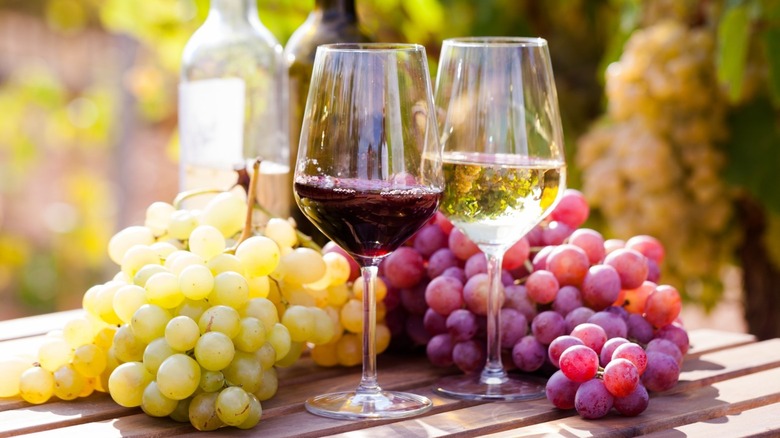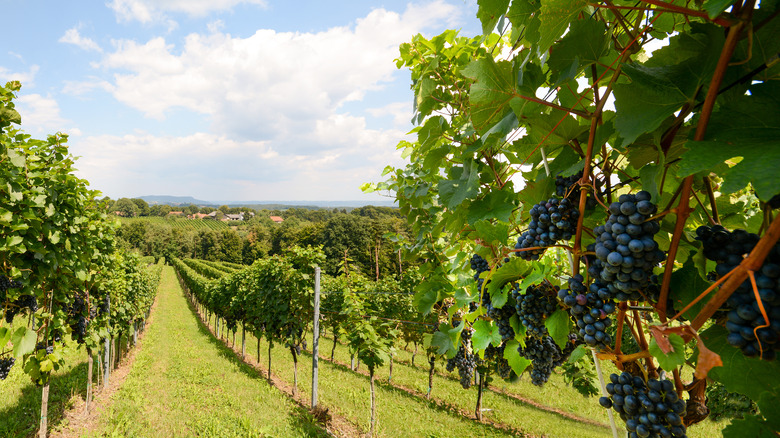How Bitter Frost Has Affected French Vineyards
It's been too cold in France in early April, which is bad news for wine producers in the country's famed vineyards. After temperatures topped 20 degrees Celsius (68 degrees Fahrenheit) in March 2022 and spring buds began to appear on the grapevines, the weather dipped below freezing a few weeks later, according to Food & Wine — an unusually cold spell.
If the buds die in the frosty air, the whole growing season would be disrupted, causing massive crop losses, a financial disaster for wine producers, and French wine to become more difficult to find. During the 2021 growing season, vintners were hit with a similar sudden temperature drop, which ABC News reported caused around 2 billion euros — that's $2.4 billion — in damages.
But combating these sudden frosts is expensive, too. At one winery, growers used torches and heated cauldrons to keep the vines warm, which ran them about $2,215 per acre, per The Telegraph. Growers also used surprisingly old-school ways of protecting their crop, including lining their fields with paraffin wax candles to generate heat and spraying the buds with water to try to regulate their temperature (via ABC News).
The tragic link between climate change and wine growing
The reason for unusual temperature swings in France's wine-growing regions is a familiar culprit: Climate change, per Axios. In fact, climate change is already affecting wine pretty devastatingly. Warming winters cause a phenomenon known as "false spring," during which unseasonably warm temperatures cause plants to bloom too early, making them more vulnerable to periods of frost (via Urban Ecology Center).
A World Weather Attribution study of the devastating 2021 cold snap found that climate change makes this situation more than 60% more likely to occur. Shifting weather patterns are leading not only to warmer average temperatures overall but also to more intense freezing periods, like the deadly Texas cold wave that hit in 2021, per Washington Post.
In France, as winemakers experienced the coldest April day in 75 years (via France24), they need to adjust, and quickly. "There's a lot to be done in changing viticulture practices ... in the context of climate change," wine-growing adviser Mathilde Civet told Reuters — but not everyone is on board. "The recent episodes of drought and frosts have been a wake-up call for some, but in previous years there was a sort of denial."

